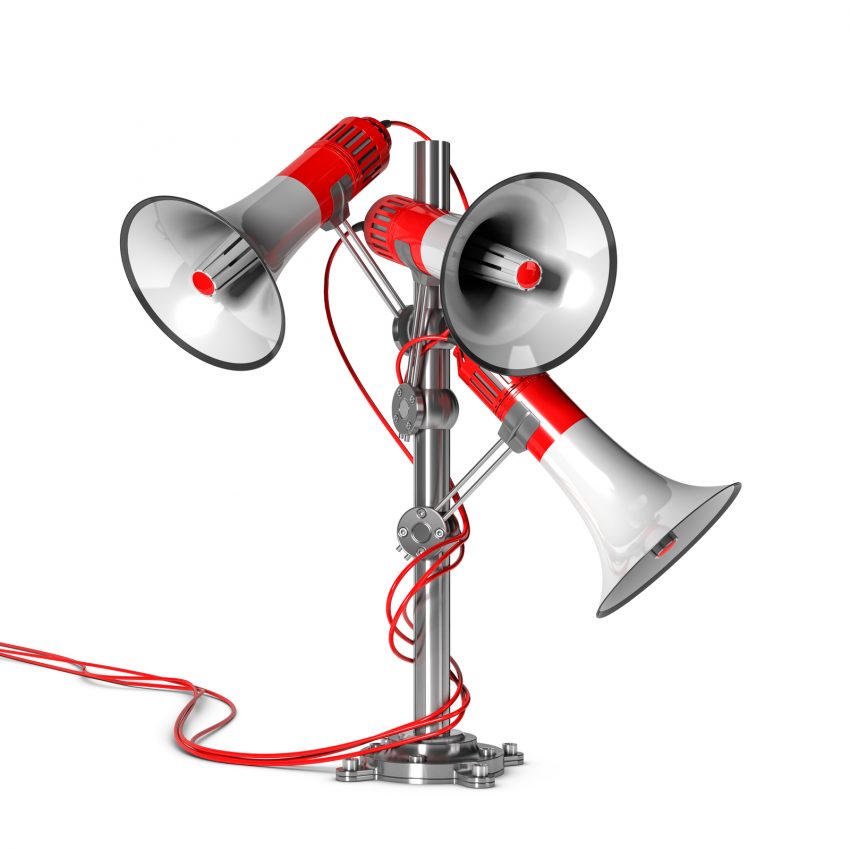Promoting your podcast to grow your audience is something you should do regularly. You should be dedicating just as much time and passion as you do when crafting and recording each of your podcast episodes.
But how do you do that exactly?
If you plan on building an audience and getting recognized for your work, then you should definitely consider investing in a website.
Developing a Website for your Podcast
Why should you create a website for your podcast?
First of all, it gives you the power to create your story. A website is created and designed by you, as is the copy that you can write about your podcast episode. A website gives you the freedom to do many things all at once. For example, an episode webpage can include:
- an embedded player that features your podcast or episodes, allowing you to direct listeners to your own page while still having your hosting, play counts, and other analytics provided by your hosting platform;
- a transcript of the episode filled with SEO rich keywords that will help drive organic traffic to your website;
- links to other distribution platforms like Apple Podcasts if your listeners prefer accessing episodes on a different medium;
- reasons why they should be listening to your podcast. For example, if you have a podcast all about marketing, listeners would probably like to know what makes you an expert;
- connection. A webpage allows listeners to contact you via email or signup form for a newsletter, or a call-to-action (CTA) piece. It is also ultimately better for promotion through your social media channels because it’s better to link to your website than an episode on Apple Podcasts;
Let’s quickly recap what are some of the elements that you can include on your website:
- Podcast embedded player
- Bio
- Episode Notes
- Personal proof, consisting of expertise and authority
- Transcription
- Ratings and reviews
- Link to the places where you can be found
- Thank you to your guests and sponsors (plus links)
Developing a Marketing Strategy
Before even dipping your toes into the social media world, it is smart to plan out a strategy that can be used to for promoting your podcast. Yes, marketing can be fun but it also should have a very measurable impact on your overall goals and objectives.
It is important to think about where your potential listeners spend time online and offline.
Social Media
Your first step is to figure out which sites would be most beneficial for you to use for promoting your podcast. There is a lot that needs to be done before you click the “tweet” or “publish” button.
The idea is to create a solid plan before even starting to use social channels so that your social media efforts do not fall on a blind eye, or even worse, the wrong type of eyes.
So which channels should you be most active on?
Choosing which channel you should focus your energy on depends entirely on your audience. Who are they? If your audience, for example, is mostly millennial females looking to learn about wellness, spirituality, and entrepreneurship, then Instagram would be a great fit. On the other hand, if you have a political podcast, then maybe Twitter would work better for you.
After finalizing your target audience and the social media channel(s) that you’d like to focus on, the next step is to plan the specific type of content that you want to create for that specific channel (or channels).
Create Video Podcasts
Creators are launching new YouTube channels for their podcasts primarily because they can leverage YouTube’s search algorithm to find and engage with new audiences. YouTube is the second largest search engine on the planet, right behind Google – so why not be there.
Entice and Engage
There are many ways that you can entice and engage your audience (and potential audience as well).
Audiograms and/or short video clips of upcoming episodes can also help entice potential listeners and help you promote your podcast. Did your guest say something that was just genius during your interview? Or did you have an intense ah-ha moment?
Headliner and Veed.io are two tools that you can use, both of which have free and paid options.
Go Live
Nowadays you can go LIVE on almost every single social media platform, from Instagram, and Facebook to YouTube and LinkedIn. You can even live stream to multiple platforms at the same time. This allows you to post on various platforms without having to tailor individual versions of your content for each channel. Restream.io, for example, allows you to stream live to 30+ social platforms at once.
Repurpose Content
In an article named “How to Make 64 Pieces of Content in a Day” Gary Vee provides a 270-page deck, outlining some of the hacks he uses to produce more content. I would recommend everyone to take 5-10 minutes out of their day to read it. Gary Vee recommends such simple hacks like screen-shooting your (or even other people’s tweets) and turning them into an Instagram post and/or downloading TikTok clips and posting them to Instagram stories.
No matter the social media channel, one thing that is important to remember is that growth and engagement by promoting your podcast takes time (and of course consistency).
Recorded in Studio C at Channel 511, in the Brewery District, downtown Columbus, OH.
Brett Johnson is the owner and lead consultant at Circle270Media Podcast Consultants. With over 35+ years of experience in Marketing, Content Creation, Audio Production/Recording and Broadcasting, the podcast consultants at Circle270Media strategically bring these strengths together for their business Podcast clients.
Subscribe to my free daily Open The Mic Newsletter at www.circle270media.com. It’s chock full of podcast news you may have missed, as well as social media, sales, and audio production tips, and insights on how to grow your business podcast.
If your business is using podcasting as a marketing or branding tool, I would love to showcase your podcast. Go to www.notetofutureme.com and scroll down to my booking calendar.
Email us at podcasts@circle270media.com to set up time to talk more about your new or established business podcast.
I want to thank ArchesAudio dot com for the music you’re hearing the very beginning. I have no affiliation with that company. They provide audio to podcasters for free as long as you give them some accreditation verbally in your podcast as well on the show podcast notes.

